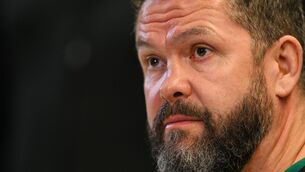Mon, 21 Mar, 2005 - 00:00
Charlie Mulqueen
The better team won on Saturday. What is more, the RIGHT team won.
Wales came on a mission and achieved it in magnificent fashion.
Already a subscriber? Sign in
You have reached your article limit.
Subscribe to access all of the Irish Examiner.
Annual €130 €80
Best value
Monthly €12€6 / month
Introductory offers for new customers. Annual billed once for first year. Renews at €130. Monthly initial discount (first 3 months) billed monthly, then €12 a month. Ts&Cs apply.
CONNECT WITH US TODAY
Be the first to know the latest news and updates
CourtsRugbyPlace: Millennium StadiumPlace: CardiffPlace: Cwm RhonddaPlace: New ZealandPerson: Mike RuddockPerson: Max BoycePerson: Gavin HensonPerson: Gethin JenkinsPerson: Ronan O'GaraPerson: JenkinsPerson: John ToshackPerson: Stephen JonesPerson: HensonPerson: DelilahPerson: Michael OwenPerson: OwenPerson: Martyn WilliamsPerson: Ryan JonesPerson: Dwayne PeelPerson: Tom ShanklinPerson: Kevin MorganPerson: ShanklinPerson: Shane WilliamsPerson: Brian O'DriscollPerson: Denis HickiePerson: Geordan MurphyPerson: Girvan DempseyPerson: Anthony FoleyEvent: Grand SlamOrganisation: WalesOrganisation: WelshOrganisation: IrelandOrganisation: IrishOrganisation: WestminsterOrganisation: ItalyOrganisation: Scotland















